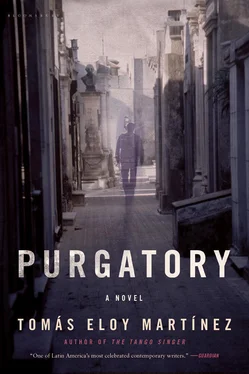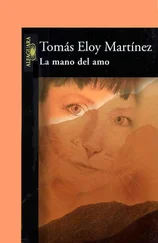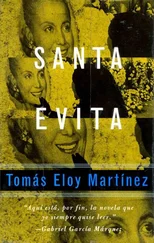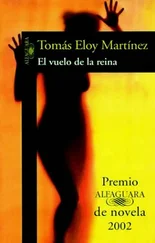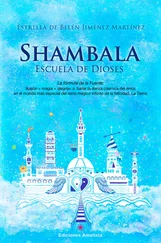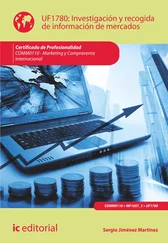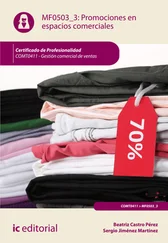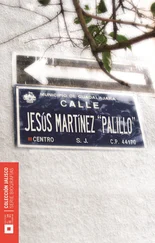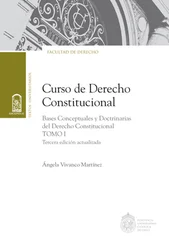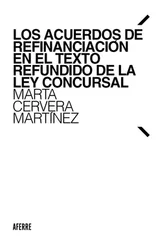‘He started shouting that this student of his was a great writer who had been tortured half to death after his arrest.’
‘My God. What did you tell him?’ This from the wife with the swollen legs.
‘I told him the truth. I told him my government is at war against Communist subversives, but it does not resort to torture or to murder. Professor Addolorato, who was sitting on my right, managed to save the day. “How could you even think of bringing such an outlandish accusation to this table, Father?” he said.’
‘Addolorato is a fine man,’ his wife agreed.
‘You don’t know how grateful I am to him. The priest was about to launch into another diatribe, but Addolorato told him to calm down. “We are all living through troubled times,” he said, “let’s not distract the president with such trifling matters.” ’
Simón stopped eating and, for the first time, joined in the conversation. Dupuy and Ethel were afraid he would say something rash. And indeed he did.
‘Torture, comandante , is not a trifling matter, regardless of the ends for which it is employed.’
The president twisted his mouth into an expression of disgust, but it was Dupuy who reprimanded him.
‘This is none of your business, Simón.’
‘This is everyone’s business. I can’t be expected to hold my tongue when a crime is being committed.’
‘Calm down, hijo .’
The monsignor raised the index and middle fingers of his right hand as though exorcising Simón. ‘There are things which, though they may seem like crimes, are actually simple justice. You need to understand. The momentary pain of one man, one sinner, can save the lives of hundreds of innocent people. Try to think of it that way.’
‘The question is not one of quantity, Monsignor. As far as I am concerned to torture a single human being is the same as torturing all of them. As I’ve heard it said in the parish church in my town: when they crucified Christ, they crucified all humanity.’
‘You cannot compare the two. There was only one Christ. He was God made flesh.’
‘True, but two thousand years ago, nobody knew that.’
Emilia’s breathing was ragged and she was beginning to sweat. She looked as though she might faint. Everyone turned and she felt embarrassed to be the centre of attention.
‘I’m sorry,’ she said, getting to her feet, ‘I don’t know what’s wrong with me. I’m feeling a little dizzy.’
‘Simón, take her up to her room,’ the father commanded. ‘Give us a moment to compose ourselves.’
‘It’s probably the champagne,’ said Emilia. ‘I don’t drink. I’m not used to it.’
The mother too got up from the table, looking nervous.
‘I’ll just go and see what’s happening.’
The president’s wife smiled, dismissing the episode lightly.
‘Perhaps she’s expecting. Perhaps her little dizzy spell might be considered a godsend—’
‘Don’t be ridiculous,’ Dupuy interrupted, embarrassed. ‘Neither she nor her husband are ready to start a family. I’ve said as much to both of them and they agree.’
‘Babies come without being called,’ the monsignor said. ‘We must respect the will of the Almighty.’
From that point, the dinner began to go downhill and by the time the mother came back with the good news that Emilia was much better and had fallen asleep, there was nothing more to say. Dupuy was left with the unpleasant feeling that the president blamed him for the pall cast by his son-in-law over the evening.
As he was leaving, the monsignor asked Dupuy in confidence whether he had had Simón’s background thoroughly vetted. ‘He’s a member of your family, Doctor, so he can’t be a Commie, though — God forgive me — he talks like one.’
More than once, Dupuy had noticed that his son-in-law made no attempt to keep his irresponsible thoughts to himself. He would have to bring the boy to heel. With things as they were, there was no place for dissidence, for argument. How could Simón not understand that in saving the country from toppling into the abyss, any and all means were acceptable? If it was necessary to torture people to purge the country, then there was nothing to be done but torture them. The sacrificial sufferings of Joan of Arc and of Miguel Servet had served only to make the Church stronger. True, good men sometimes paid for sinners, but such things were inevitable in wartime. The junta could not publicly admit to the summary trials and executions since this would simply allow the enemy to launch into an endless, disruptive debate. The only thing to be done was exterminate the subversives quickly and quietly. If a military leader preferred to take them prisoner and use them as slave labour, so be it, provided he did so in secret. This priest with the glass eye had had the gall to raise the case of a disappeared Christian with the president. Let him bring up the subject as often as he liked. No one would listen to him. Right-thinking people were sick to death of violence. What they wanted was peace and order. The spirit of Argentina which Dupuy wrote about so often in La República had risen from the dead, it was sanctified. Dios, Patria, Hogar — God, Country, Family — were words which Dupuy believed should be inscribed on the white band of the national flag beneath the Sun of May. He would suggest as much in his next editorial for the magazine. Using the Socratic method which was by now his trademark, he would say: ‘If the Brazilians have forged their democracy with the motto Ordem e Progresso , which is emblazoned on their flag, and the United States have the words In God We Trust engraved on their banknotes beneath their own protective emblem, why should Argentina not publicly declare that it is founded on three hallowed words: God, Country, Family?’ It would be a timeless lesson which would forestall any onslaught by totalitarian subversives. They do not believe in God, nor in the family, and the country for which they are fighting is Soviet or Castroist rather than Argentinian: a strange country, a Communist country.
Simón disappeared in Tucumán at the beginning of July. The days were mild and the nights frosty. He and Emilia had been sent to Tucumán by the Automobile Club on an easy mission, virtually a holiday. They were to map a ten-kilometre stretch of an invisible route — nothing more than a dotted line on the map — to the south of the province. ‘It’s changed a lot, that province,’ Dupuy told them. ‘Until recently, it was a brutal, feudal place. The subversives had the gall to declare it a free American territory. Can you imagine? Now, it’s a wealthy, peaceful province: there are no more terrorist attacks, no more kidnappings. The kerbs are painted blue and white; everywhere you go, there is order. In less than four months, the military government has worked miracles.’
At Tucumán airport, there was an Automobile Club rental jeep waiting for them. They spent the night at a hotel in the centre of town and at 5 a.m. they started driving south. The early hour, the brittle air, the emptiness of the streets: all these details which seemed so trivial were the first things Emilia would later remember. The shimmer of dew on the fields of sugar cane. The shadows of dogs moving under the street lamps. The tobacco leaves lying lazily in thick mats. Every few kilometres there was a military checkpoint and at every one they had to present their papers and explain why they were going where they were going. They were stopped in Famaillá, Santa Lucía, Monteros, Aguilares, Villa Alberdi. At the checkpoint at La Cocha, a sergeant emerged from the toilets, trousers halfway round his ankles, and barked at his men to check the jeep again. ‘Check under the seats,’ he told the guards. ‘These fucking subversives hide their weapons in a false bottom under the seats.’ ‘We’re cartographers, we’re with the Automobile Club,’ Simón explained. ‘We make maps.’ This made matters worse. They were hustled into a storeroom and subjected to a barrage of meaningless questions. ‘How do we know your papers aren’t forgeries? Why did you rent a jeep instead of a car like anyone else?’ In the corners of the storeroom were piles of corn cobs and rats. They were huge, grey, menacing. To allay the doubts of the guards, Simón sketched the route they were to map, from Los Altos to the banks of the Río El Abra. He explained that most maps omitted landmarks and that the course of Ruta 67 was not accurately mapped. He and his wife were here to rectify these mistakes. ‘There was a plane overflying the area yesterday,’ the sergeant said. ‘It came by twice, flying very low. I suspect they were taking photos. Right now I’m thinking maybe they had something to do with you. That’s how they plan terrorist attacks, spying missions, people who pretend they’re just passing through. Cardologists, natologists, everyone pretending to be something they’re not. Cartologists like you.’
Читать дальше
